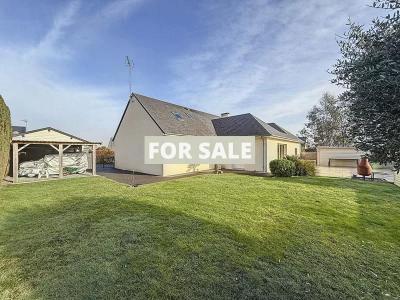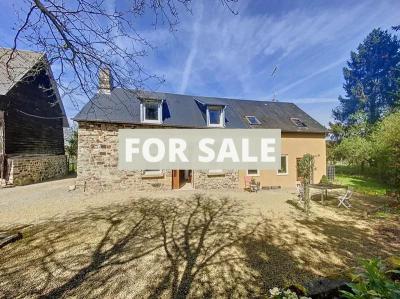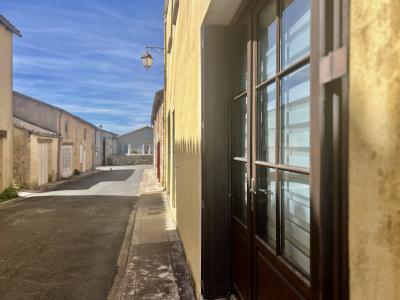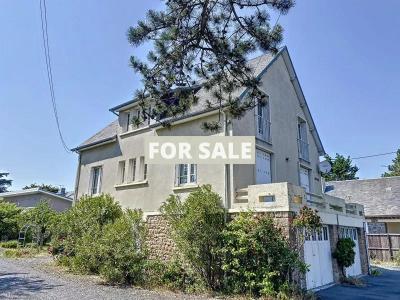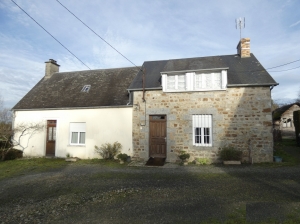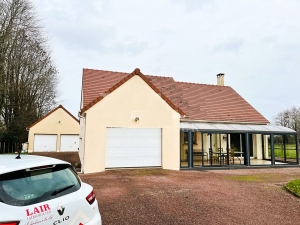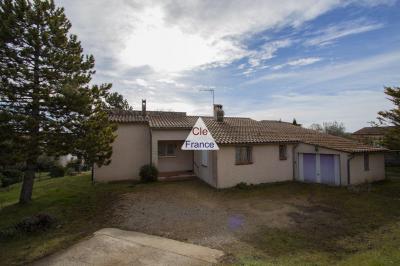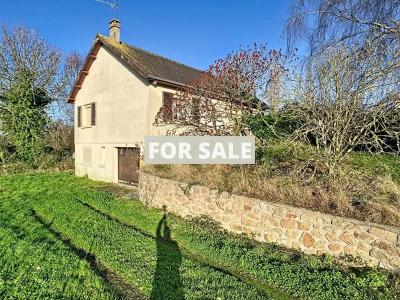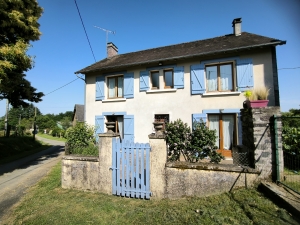Club Clé France: Legal Guide to Buying French Property

We are proud to work in partnership with Ashton KCJ - Legal services. If we think our clients need further legal advice or have a specific legal question that needs solicitor involvement when buying or selling a property in France we can recommend...
Matthew Cameron and his team for expert advice.
Original article supplied by Ashton KCJ - Legal Services.
Introduction:
This is a simplified guide to the process of buying a property in France. While all reasonable endeavours are taken to ensure that it is correct at the time of publishing it does not purport to be an exhaustive analysis of the relevant laws as applicable to you.
We trust that it will, however, provide you with sufficient background information on French law to help you in your purchase or sale, and will lead you to seek specific legal advice and guidance from us regarding your circumstances.
If you are looking to purchase a property in France, it is imperative that you give adequate consideration to the implications of French and UK inheritance law and tax as there can be a number of complications on either side of the Channel, depending upon your personal circumstances.
Furthermore, even at the time of purchase there are a number of points that you should bear in mind for the future, should you need to sell the property. Certain steps that you take now may assist the sale process, and especially the tax implications of a sale, so we would strongly recommend that you consider reading the section on Selling a French property.
Finding your property:
You may already have identified the property that is right for you. If not, you are on the right website as Clé France have a large selection of stunning properties in great locations. When you are looking to buy, you may give some thought to resale potential. This may be important in future years, especially if you would possibly anticipate selling to French or other international buyers whose tastes may differ.
When visiting a property through an Agent, it is common practice for them to accompany you on viewings. You may not be given the property address or details of the seller. Do however check that they have a valid mandate to sell this particular property, if you are viewing through Clé France everything will be fine.
The only document you should be asked to sign at the point of visiting a property is a 'bon de visite', which is only to confirm that you saw a specific property through that Agent. This does not constitute any contract to purchase; you should be wary of any other document, and if in doubt, fax a copy to us for approval. A reputable Agent would not object to this step.
Funding and mortgaging:
If you need to raise funds for the purchase, you can either mortgage your English home or the French property being purchased. Each method has its pros and cons, and again this depends on your preferences and circumstances.
French lenders may lend up to 80% of the purchase price, sometimes more. Life assurance cover is usually required – and included in your monthly repayments – which must be assigned to the lender for the duration of the loan. It is advisable to apply for a mortgage at the outset and to declare your requirement for a mortgage in the purchase contract prior to signature. You will need to ensure that you are fully aware of the terms of the mortgage, which we can discuss with you if required. There can, for example, be hidden costs such as a charge for obtaining clear title once the mortgage is paid off.
Clé France recommend an International Mortgage Broker in the UK as well as Tim at STAG Mortgages if you are looking to re-mortgage your current borrowing in the UK to fund a house abroad.
There are strict lending criteria in France, that restrict the amount of available finance – you cannot normally borrow more than an amount that would result in one-third of your gross monthly income going to debt repayment.
Currency exchange / funds transfer:
You may find that it is prudent to discuss currency exchange through specialist money transfer companies. Such companies should be able to negotiate better rates of exchange between Sterling and Euro than may be offered by your bank.
They will often be able to book rates to mature at a specified future date, or agree a rate at which a currency transfer can be made. Care does need to be taken in this respect, given that when you sign a French purchase contract, the exact completion date is unlikely to be fixed. We can recommend one or more such companies for you if required.
Care always needs to be taken here to ensure that the terms are suitable. Whether you contact such a currency house or not, you should anticipate that it will take several days to ensure funds transfer from your account to the notaire’s.
Clé France and Key Currency work hand in hand for all its business currency needs and recommends Client's use them too.
The purchase process:
As in England and Wales, the purchase of French property is achieved in two main stages.
The first contract is often prepared by the Agent and you may be asked to sign it very quickly following acceptance of your offer. Clé France will allow you time to check the contract. In most instances, we can carry out this work at very short notice. This should also allow you time to organise a survey of the property – preferably prior to completion of the contract – Clé France can put you in touch with surveyors and property experts.
The second stage involves signature of an 'acte de vente' or deed of sale, at which point ownership of the property is transferred to you as buyer and the full amount of the purchase price and notaire’s fees are paid. Notaires frequently overestimate their fees in advance of completion. They then require payment of this inflated amount, making a reimbursement of the excess following completion of the registration process, several months after the sale is finalised. The exception to this is in relation to new build properties, when completion may take place well in advance of actual delivery of the property to the buyer and when only a proportion of the price is paid.
If you are selling your existing property and moving to France on a permanent basis you should bear in mind that it may be extremely difficult to synchronise the sale and purchase in two different jurisdictions. It is therefore generally advisable to have some form of contingency plan. This may be your ability to purchase the French property from other resources, or to rent a property between your sale and purchase.
The initial contract:
Some contracts include English translations, but these are not always accurate, Clé France agent contracts are very good but if you have a specific requirement/concern then speak to us. If there were any future disputes as to the terms of the contract the French version would prevail. Therefore any translation can only ever be treated as a guide. Having French documents translated into English will not ensure that they contain all appropriate clauses. If a dispute arises, you may have to instruct an avocat to resolve any problems – a notaire would take no further part if the parties were not in agreement.
Types of contract:
Contracts used for the sale of existing properties fall into three main categories: the 'promesse de vente', the 'promesse d'achat' and the 'compromis de vente'. You need to be careful that any documents you are invited to sign are suitable.
The most common form of contract is the 'compromis de vente', a bilateral contract which binds both parties to complete a purchase subject to the satisfaction of certain conditions beyond the control of buyer and seller, against the risk of sanctions for an unjustifiable failure to complete.
The 'promesse d'achat' and the 'promesse de vente' are unilateral contracts, rather like options, whereby you or our seller respectively enter into a commitment to sell or buy, but the other party is not bound. In the case of a 'promesse de vente', you may therefore be able to withdraw from the transaction before completion, although you may lose your deposit in doing so.
New-build contracts:
Contracts for the sale of new properties that are as yet incomplete, or properties being sold on a 'leaseback' scheme, differ from those used for the sale of existing properties in that they are subject to strict laws for the protection of the consumer.
Typically, you will be required to sign a reservation contract, and then a particular form of purchase deed know as a 'vente en l'état futur d'achèvement', or future completion sale. This is normally signed before the building work has finished. You take ownership of everything that has been built by then, and the remainder as work progresses. Various guarantees as to completion must be included in this form of transaction.
Please see our separate guide on new build properties.
Contract conditions – conditions suspensives:
A French contract should contain conditions 'suspensives'; special conditions which, if not satisfied, will render the contract null and void and entitle you to withdraw from the contract and recover your deposit. These include there being no adverse planning restrictions or third party rights which might materially affect your enjoyment of the property; no existing mortgages affecting the property; and no claims upon the property by the local authority or the French State.
Furthermore, there can be a condition that you obtain a mortgage. Provided you satisfy certain formalities, if you do not receive a mortgage offer you can withdraw from the purchase and have your deposit refunded.
We will ensure appropriate conditions 'suspensives' are included in the contract to enable you to be released from the contract without loss of your deposit if the stated conditions are not satisfied. The mortgage condition will normally include a time limit within which you must apply for your mortgage advance, and that so far as you are aware there is no reason for the loan to be refused.
If you fail to do so the condition 'suspensives' will be deemed to be satisfied and you could not subsequently rely upon it to withdraw from the transaction if for any reason you find yourself unable to raise the finance to proceed.
As mentioned above the contract will be completed subject to various conditions that must be satisfied prior to the sale being finalised. French law does not recognise the concept of 'subject to contract' and, it is normal to sign the contract before any searches and enquiries are made by the notaire, or before a mortgage advance has been agreed.
It should not be necessary to pay a deposit before signing the contract, and it is not wise to pay any money direct to the seller. If you are convinced that you will lose a property if you do not show your good faith as a potential purchaser, a notaire may be prepared to act as stakeholder for a small deposit. Agents can receive deposit monies provided they hold a Carte Professionnelle or licence which is only issued by the local authority upon proof that the Agent holds minimum insurance cover. Whether held by the Agent or notaire, the deposit will not attract interest.
It is wise to obtain a structural survey from a qualified surveyor with an intimate knowledge of local property and building methods to warn you about possible problems. A proper survey may enable you to negotiate a reduction in price.
Your seller would not have to disclose any structural defects affecting the property that you will take in the condition in which it stands – although he is not entitled to actually hide them. This means that if, after signing a contract, you discover structural or other defects to the property or its services, you are still obliged to complete the purchase at the agreed price and cannot obtain compensation from your seller. It is therefore preferable to commission the survey prior to signature of the contract.
As part of the purchase process, the seller is obliged to provide certain survey inspections, and these should always be checked prior to completion of the first contract. An infestation survey 'état parasitaire' is obligatory in some parts of France as are searches for lead-based paint that can potentially lead to lead-poisoning (saturnisme) and asbestos (amiante), inspections of certain gas and electrical installations, and an energy efficiency summary for the house.
A report of any recent natural disasters such as flooding or landslides that may have affected the whole area, plus confirmation of whether there is a formal disaster prevention plan in place locally, is also to be provided.
You should ensure that you retain the certificates for the searches following completion of the purchase. If you are to rent out the property, whether to holiday makers or for longer tenancy purposes, it is sensible to ensure that all of the results are made available to your guests and tenants. It would be wise to leave a copy in an information folder to remain at the property. Similar requirements apply when you have contractors come to the property to carry out work, such as decorating or renovating.
This is of particular importance in relation to the searches for the presence of asbestos and lead-based paint. You should consider whether work should be carried out to clear such materials from the property.
If the inspections reveal anomalies in the electricity and gas installations, you will appreciate the importance of correcting such problems. You should also check whether such anomalies would have any impact on your property insurance, especially if you intend to rent the property out.
We can obtain an up-to-date registered plan or 'plan cadastral' of the property, showing the extent and boundaries of the property. It is important to check rights of way and other easements, rights or restrictions which might affect your use and enjoyment of the property. Check whether a planning or other consent was required and obtained for any construction or change to the property, including installation of a swimming pool or septic tank.
The property may be a historic monument or in a classified area. If so, it may be an offence to make any alterations or improvements without first obtaining the correct permissions. If you are buying a property that is subject to an existing planning permission, you will need to ensure this is transferred into your name on completion; this is normally a formality with which we can assist.
Look at the surrounding area for potential nuisances such as smell etc. The property may be in an area which, though quiet when inspected, is susceptible to seasonal traffic or in a locality which attracts large crowds. To find out more about these, a personal visit to the local Town Hall to inspect the zoning plan or 'Plan d’Occupation des Sols' (the 'POS') may be advisable.
Information about surrounding land and planning applications in adjoining property will not necessarily come automatically as part of the local authority enquiries. If any furniture or other movables are to be left by the seller, make sure an inventory is included in the contract. This should include a cost for each item.
'Cooling off' period:
There is a seven-day 'cooling-off' period during which, as a prospective purchaser, you can consider whether you do indeed wish to proceed with the purchase. The period runs from the time you receive the contract. You cannot normally be required to pay the deposit before the end of this time. If you decide not to proceed you must notify the seller formally within seven days. The seller must receive the notice within that time, and there are strict rules as to how the notice must be served. If you have paid a deposit, this is to be returned within twenty-one days of service of a valid notice to cancel.
Between contract and completion:
Once the contract is signed, the notaire will obtain the equivalent of a Land Registry search from the 'Bureau de Conservation des Hypothèques', to disclose any restrictions on the seller’s right to convey title and the existence of mortgages. A 'Certificat d’Urbanisme' is obtained, to confirm the permitted use of the land and administrative restrictions or requirements which apply.
Depending on the drafting of the application submitted to the local authorities, the 'certificat' may also give information on whether building is allowed, the density and other details of development. Note however that a 'Certificat d’Urbanisme' is only valid for one year.
Planning and construction:
Be aware of the various construction insurances and if you intend to extend or build a property, planning consent may be necessary. Do bear in mind that there are time periods during which third parties may object, and there are strict rules relating to publishing a permission.
As necessary, searches for the presence of lead-based paint, asbestos, termites, gas and electricity installations, and an energy efficiency report can also be carried out through the Agent or notaire. A summary of any local natural risks, and risk prevention plan – if any – are provided by the Mairie (Town Hall).
Personal details:
The notaire will require evidence of your 'état civil' or civil and marital status. Normally you will be required to provide birth certificates, marriage certificates and divorce Decree Absolute or Death Certificate of any previous spouse if relevant, and sometimes photocopies of passports. It is normal for women to be referred to by their maiden name, even if they are married.
Completion:
The various search results will take about two months to come through to the notaire, who will then invite the parties to sign the purchase deed at his office. We will ask the notaire to send us a draft in advance of completion. In the case of a property forming part of a multiple development, the notaire will also provide a co-ownership agreement which is binding upon each property owner. If you are going to the notaire’s to sign the purchase deed it will be important to establish if your French, or the notaire’s English, is proficient, or if an interpreter will be required (at your expense).
Even though we will have been able to consider the draft deed in advance of your meeting, such that you can understand its content, it is still important to ensure that there are no misunderstandings during the meeting itself.
We can often ensure that you can sign by power of attorney, if you do not intend to go to the notaire’s office for completion, although sometimes this may not be possible. This document may appoint a friend or (more usually) a member of the notaire's own staff to sign on your behalf. The attorney can then sign the deed of sale on your behalf at a time convenient to the notaire and your seller. The power would normally need to be witnessed by a solicitor or notary public, and sometimes legalised with a certificate from the Foreign and Commonwealth Office, the effect of which is to certify the signature and details of the Notary Public or solicitor who witnessed the signature.
The notaire will ask you for the balance of the purchase price and legal fees which must be in cleared funds in his account before completion can take place. Make sure that the full purchase price will be available in good time before the date fixed for completion.
Transfer of money between the United Kingdom and France can take longer than you think and often at least one week. In relation to the transfer of funds Ben Amrany at FC Exchange should be able to negotiate a better rate of exchange, resulting in a substantial saving for you.
Once the 'acte de vente' is executed, title to your property is registered by the notaire at the 'Bureau de Conservation des Hypothèques'. Once registered, the 'acte de vente' is kept in the notaire’s archives in perpetuity and only an official copy is provided as evidence of your title. If you require proof of ownership immediately after completion, the notaire can supply a statement or Attestation confirming that you are the owner. The registration process itself often takes several months to complete.
Insurance:
The property needs to be insured on completion. French insurance coverage is similar to that given in the UK and should extend to damage or injury to neighbours and third parties.
Householder's comprehensive insurance protects you not only against damage or injury to third parties but also usually covers:
• fire, explosions, lightning, terrorist attacks, storms, hail, snow on roofs, natural disasters, flooding or freezing, legal expenses, household accidents, damage to electrical appliances, theft and vandalism.
Naturally exclusions can apply, for example when the property is uninhabited, so the wording of the contract needs to be considered.
Clé France have always used Franck Haloche for their own personal properties in France as well as recommending Allianz Insurance to all clients due to the top quality service and English speaking staff.
If you are buying a property in co-ownership, such as an apartment or a villa on certain forms of estates, you should pay extra attention to the cover that needs to be taken out. It is likely that the co-ownership will insure the buildings, although the extent of this buildings insurance can vary. You should obtain a copy of the co-ownership’s insurance certificate and provide this to your own insurer, to be certain that all risks are covered.
There may for example be certain elements of the property or its fixtures that are not covered by the co-ownership’s policy. You should note that insurance policies normally require that chimneys are cleaned annually (rammonage), and confirmation provided to the insurer.
Legal expenses:
The buyer is solely responsible for the legal costs and expenses incurred in relation to the transfer of French property which must be paid to the notaire before completion takes place. These costs are generally about 7.5% plus a further amount of approximately 1% if you are taking a mortgage. These fees are fixed in accordance with set scales. Similarly, new build and leaseback property purchases will normally attract notaire’s fees of around 2.5% - 3%, excluding mortgage fees.
Annual taxes:
Local taxes are payable in France each year. The 'taxe foncière' or land tax is apportioned on a pro-rata basis and you will be required to reimburse your seller for the remaining part of the year. Owners of new properties are exempt from this tax for the first two years of structural completion.
The 'taxe d’habitation' is payable by the person occupying the property at 1st January and is not apportioned on sale. You will therefore not be required to pay this until 1st January following completion of your purchase.
In some parts of France, sundry taxes or 'taxes assimilés' such as for the supply of snow sweeping or other amenities are also payable. These taxes are often apportioned between the seller and the purchaser at the date of completion of the purchase.
Utilities:
It is up to you to arrange to connect to utilities such as electricity, gas, water and telephone. You may like to consider opening a French bank account from which to pay your accounts by direct debit. Never overdraw your French bank account beyond any specifically granted allowance, as the penalties for this are severe, and it is an offence to write a cheque for which funds are not available.
Clé France and their agents can help to set everything up for you including a French Bank Account.
Let us look at some special types of purchase:
Building your own property:
Once you have secured a suitable plot of building land, you will need to find out about legal easements or other constraints and to obtain a 'Certificat d’Urbanisme'. Once you are the owner of the land and the plans for the new property have been drafted, you must apply to the Mairie (Town Hall) for planning permission.
When planning permission is granted, you have two years in which to start the proposed work, it being necessary to make a declaration to confirm the start of the building work.
There are two main forms of building contract. The company contract or 'contrat d’entreprise' is an agreement by which you enlist the services of one or more builders to whom you should give a copy of the plans. The contract outlines the price (fixed or subject to review), the timetable and the agreed payment schedule. With this contract it is your responsibility to supervise and coordinate the entire project.
The construction contract or 'contrat de construction' is the most common form of building contract. You will deal with one professional only who will be responsible for the construction work. French law strictly governs the payment schedule and you have the advantage of various guarantees.
As mentioned above, if you are buying a property that already has a planning permission in place, this will need to be transferred into your name on completion of the purchase.
The vente en viager:
Although relatively rare, you may be asked to buy a property 'en viager'. This is a method whereby someone, generally an elderly person, sells property on an instalment basis. Possession may or may not be given to you on the date of completion. On that date the 'acte de vente' is signed and you pay a small proportion of the purchase price.
The deed of sale provides that a monthly or quarterly sum shall be paid by you to your seller for so long as the seller lives, thus providing him with an income. Whether or not you obtain a good bargain depends upon how long the seller lives.
Commercial premises:
If you are thinking of setting up a gite, restaurant, hotel or other business in France, you will need expert advice to guide you through the procedures, laws and tax regulations. Before making a commitment of any kind, you should make sure that you will be allowed to carry on your intended business. In some cases, this will require licences and other permits. The purchase, creation or development of goodwill and the take-over of a company in France are direct investments and a special declaration to the French Ministry of Economy may be required for these transactions between EU Member States.
Agricultural property:
If you are proposing to buy a farm or a rural property you may have to take into consideration additional factors. Various agricultural organisations may have the right to make a compulsory purchase of agricultural land at the same price as you have offered for the property. A sale cannot proceed until SAFER has confirmed it will not exercise this right.
It has up to two months following completion of the contract to announce if it wishes to exercise this right. An authorisation to farm the property may also have to be obtained from the local authorities.
French inheritance law:
It is imperative when buying a house in France – whether as a holiday home, permanent residence or otherwise – that you give adequate consideration to the implications of French and UK inheritance law and tax. There can be a number of complications on either side of the Channel, depending upon your personal circumstances.
We have a separate guide available that addresses such areas, and you should consider this as well. We believe it is important for you to seek detailed advice in this respect. Follow the link to read the guide on French succession law and Inheritance Tax.
Tax:
You should be aware that any business activity you may carry out in France, may give rise to an income or corporation tax liability in France, and also subsequently in the UK if you are UK resident. If you are French resident, then any income received worldwide is taxable in France.
Income from rental properties, including gites, is always taxable in France. If you are renting out your property you should consider registering your property with the local section of 'Gites de France'.
There is wealth tax in France, which is imposed annually on all qualifying assets in excess of a specific threshold. What assets qualify depends firstly upon your tax residence: if you are not French resident, then only your house in France would be subject to the tax; if you are French resident then everything you own may be included in the calculation (even your house in the UK).
There are nevertheless a number of allowances, such as for certain business and commercial assets, a proportion of the value of your main home if this is in France, certain antiques and so on.
There are tax treaties between the UK and France, which will normally mean that you do not have to pay taxes twice.
If you do not live in France you will have to declare your tax through the 'Centre des Impots des non-résidents' in Noisy-le- Grand. If you are French resident, then you will need to report to your local tax office.
Property rental:
If you expect to rent out the property, whether for holiday lets or on a longer term basis, you will need to note that you must declare the revenue to French income tax. Presuming you remain UK resident, you will also need to include the income on your UK tax return, although you should be able to take into account the tax already paid in France, to ensure that you do not pay the same tax twice.
You should check that the terms of your insurance policy and mortgage, if you have one, allow you to rent the property. You will also need to ensure that the various diagnostic searches (lead-paint, asbestos, electrical installation and so on) are made available to the tenant.
If you have a swimming pool, it must be protected by at least one form of duly authorised pool security. You should also ensure that all security systems – burglar alarms, smoke / carbon monoxide alarms and so on – are all working.
Want to contact Ashton KCJ ? - then simply complete the Enquiry form below:
The information that you give and that we obtain through you using this website may be used by this Company and by our partner companies only for purposes in connection with your use of this website and for marketing activities of this Company and partner companies. By using this site you confirm your consent to this. If you do not want to receive any marketing information from this Company and/or our partner companies then please notify us.
Ashton KCJ is authorised and regulated by the Solicitors Regulation Authority (Recognised Body number 45826). The information contained in this guide is of a general nature and specific advice should be sought for specific situations. We believe the information to be correct as at the time of publication, February 2013. While all possible care is taken in the preparation of this leaflet, no responsibility for loss occasioned by any person acting or refraining from acting as a result of the material contained herein can be accepted by the firm or the authors.
For everything you need to know about French property for sale visit www.clefrance.co.uk


